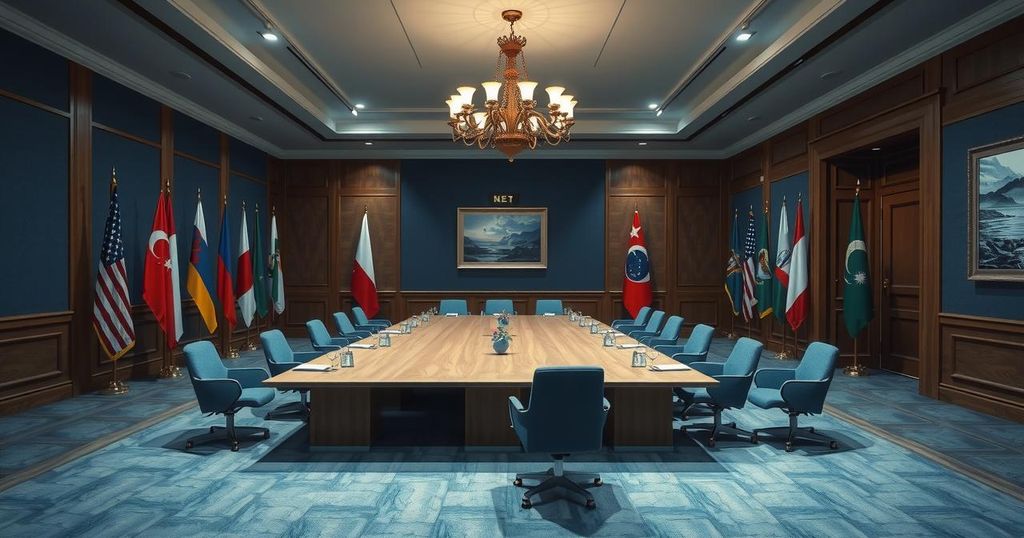Former German ambassador Peter Fahrenholtz challenges EU official Kaja Kallas over her claims suggesting Rwandan support for M23 rebels in the DRC. He highlights the need for recognition of grievances among M23 members and questions the involvement of European mercenaries. Rwanda’s Foreign Affairs Minister emphasizes the security threats posed by FDLR and cautions against one-sided blame for the conflict.
In a recent discussion concerning the crisis in the Democratic Republic of Congo (DRC), Peter Fahrenholtz, a former German ambassador to Rwanda, confronted Kaja Kallas, the European Union’s High Representative for Foreign Affairs and Security Policy. He questioned Kallas’s assertions regarding Rwanda’s supposed support for the M23 rebel group, stating that the grievances of the M23 and the persecution of Congolese Tutsi were insufficiently acknowledged.
Fahrenholtz called into question the categorization of the M23 rebels, asking if they were not residents of DRC and whether European mercenaries were not involved in combat against them. He emphasized the need to address who would advocate for the protection of ethnic minorities such as the Tutsi in eastern DRC.
M23, identified as part of the Alliance Fleuve Congo, is led by Corneille Nangaa and seeks to defend the Congolese Tutsi community, which has experienced ongoing persecution. In response to the conflict, it was documented that approximately 2,000 Eastern European mercenaries had been enlisted to support the Congolese army and its coalition forces, which includes Burundian troops and local militias.
During a meeting with Rwanda’s Foreign Affairs Minister, Olivier Nduhungirehe, Kallas reiterated her concerns regarding respect for DRC’s territorial integrity and urged the withdrawal of M23 from occupied regions. In contrast, Nduhungirehe dismissed accusations of Rwandan support for the rebels, citing legitimate security concerns posed by the FDLR militia, which is infamous for its historical ties to the Rwandan Genocide. He asserted that mere blame on Rwanda for the DRC crisis would not facilitate a resolution.
The ongoing crisis in eastern DRC has ignited a robust diplomatic exchange regarding the roles of various stakeholders, including Rwanda and European mercenaries. Fahrenholtz’s discourse with Kallas sheds light on the complexities surrounding the M23 rebels and the need for a balanced understanding of the ethnic tensions involved. The situation underlines the importance of addressing security concerns while fostering dialogue to pave the way for a peaceful resolution in the region.
Original Source: www.newtimes.co.rw




